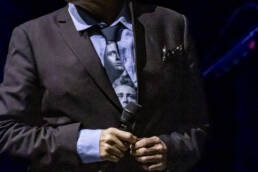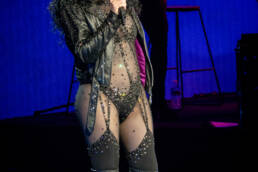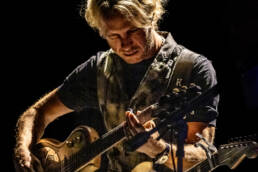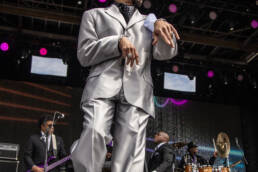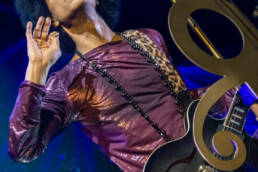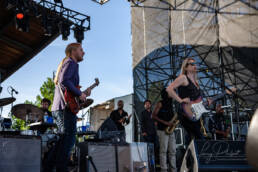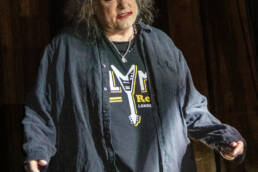Joe Elliott of Def Leppard: The Sheffield Lad Who Roared
Imagine a lanky teenager in Sheffield, England, 1970s grit clinging to his boots, spinning records in his bedroom while the steel mills hummed outside. For Joe Elliott, music wasn’t just a passion—it was a rebellion, a ticket out of a working-class life where the future looked like a factory floor. What drove him to chase it as a career? It was the electrifying jolt of glam rock—Bowie, T. Rex, Mott the Hoople—blasting through his speakers, whispering that a kid from the wrong side of the tracks could strut, snarl, and sing his way to the top. That dream, fueled by a voice that could soar and a will that wouldn’t bend, turned Joseph Thomas Elliott into the heart and howl of Def Leppard.
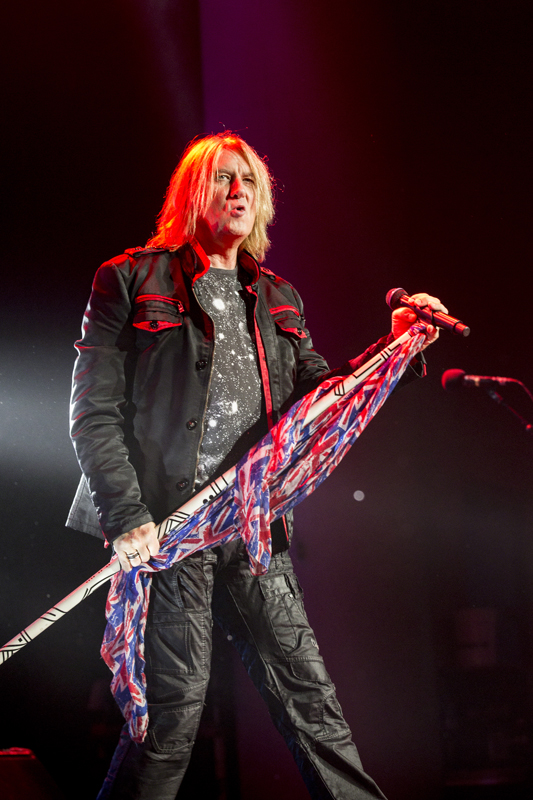
From Tapton to the Top
Born August 1, 1959, in Sheffield’s Broomhill district, Joe grew up in a modest home with parents Joseph Sr., a steelworker, and Cynthia, a seamstress. A shy only child, he found solace in music—by 16, he was skipping classes at King Edward VII School to dissect albums like Ziggy Stardust. He worked odd jobs—bus conductor, factory hand—but his mind was elsewhere. In 1977, answering a flyer for a band called Atomic Mass, he met Pete Willis and Rick Savage, and everything clicked. Renamed Def Leppard (Joe’s idea, inspired by a doodle), they became his life’s work.
A Career of Steel and Triumph
Joe’s career is synonymous with Def Leppard, a band he’s fronted since its 1977 inception. The classic lineup—Joe Elliott (vocals), Pete Willis (guitar), Rick Savage (bass), Rick Allen (drums), and Steve Clark (guitar)—hit stride with High ‘n’ Dry (1981). After Willis’s 1982 exit (fired for alcoholism), Phil Collen joined, and Pyromania (1983) exploded—seven million copies sold, MTV on repeat. Hysteria (1987), forged through Rick Allen’s 1984 car accident (losing his left arm) and Steve Clark’s 1991 death (alcohol poisoning), went 12-times platinum, cementing their legacy. Vivian Campbell replaced Clark in 1992, rounding out today’s crew.
Beyond Def Leppard, Joe’s dabbled—Down ‘n’ Outz, a Mott the Hoople tribute band formed in 2009, released three albums. He’s sung with The Rolling Stones, duetted with Taylor Swift on CMT’s Crossroads (2008), and joined Ghost for “Spillways” (2022). Relationships? His 1989 marriage to Karla Ramdhani ended in 1996; his 2004 union with Kristine Wathne bore daughter Finlay (2010), ending in 2016. Since 2019, he’s been with Ciara O’Connor. On screen, he’s popped up in That Metal Show, voiced in The Simpsons (“Pour Some Sugar on Me”), and narrated Planet Rock docs.
Awards? Def Leppard’s haul includes two American Music Awards (1988, 1997), MTV Video Music Awards for “Pour Some Sugar on Me” (1988), and induction into the Rock and Roll Hall of Fame (2019)—Joe’s proudest night, he says.
Here’s a rundown of their biggest hits:
- “Pour Some Sugar on Me” – Co-written by Joe Elliott, Steve Clark, Phil Collen, Rick Savage, and producer Mutt Lange, this 1987 anthem hit No. 2 on the Billboard Hot 100.
- “Love Bites” – Penned by the same crew, this 1988 power ballad became their only No. 1 hit.
- “Photograph” – Written by Joe, Steve, Rick, Pete Willis, and Mutt Lange, this 1983 classic reached No. 12.
- “Hysteria” – Crafted by Joe and the Hysteria team, this 1988 gem hit No. 10, pure emotional heft.
Controversy in the Spotlight
Joe’s dodged major scandals, but Def Leppard’s had its share. Rick Allen’s 1984 crash—drunk, flipping his Corvette—shocked fans; his return, drumming one-armed, inspired millions. Steve Clark’s 1991 death cast a shadow, with Joe admitting in Behind the Music, “We couldn’t save him.” In 2011, Joe’s rant against a Dublin crowd for booing a late start (“F*** off, we’re here now!”) sparked backlash, though he later apologized. His 2016 jab at Rolling Stone—“They wouldn’t know rock if it bit ‘em”—reignited old gripes about snubs. Still, he’s kept it cleaner than most ‘80s rockers.
A Night of Sheffield Soul: Don Valley, 1993
Let’s teleport to June 6, 1993, at Sheffield’s Don Valley Stadium—a homecoming gig for Def Leppard, 35,000 fans packed in, the air buzzing with Yorkshire pride. Adrenalize was riding high, but Steve Clark’s loss hung heavy. Joe, 33, strode out in a Union Jack jacket, voice raw from a cold, and kicked off with “Let’s Get Rocked.” Mid-set, during “Hysteria,” the PA faltered—crackling feedback drowned the intro. Joe waved the band to stop, grabbed the mic: “Alright, Sheffield, you know this one—sing it for Steve!” The crowd roared the chorus—“I gotta know tonight”—a capella, chilling the night air. Phil and Viv layered back in, Rick’s one-arm groove thundering, and Joe, tears in his eyes, belted the finish. “That was for you, mate,” he whispered off-mic, a nod to Clark. Backstage, he told Kerrang!, “It felt like he was up there with us.” Bootlegs call it “The Sheffield Miracle”—a moment of grit, heart, and healing that defines Joe’s reign.
Joe Elliott’s story is Def Leppard’s backbone—a Sheffield lad who turned steel-town dreams into stadium anthems. Through tragedy, triumph, and a voice that still cuts, he’s proven rock’s not just noise—it’s survival. Catch him live, and you’ll hear that roar, unbroken after all these years.
